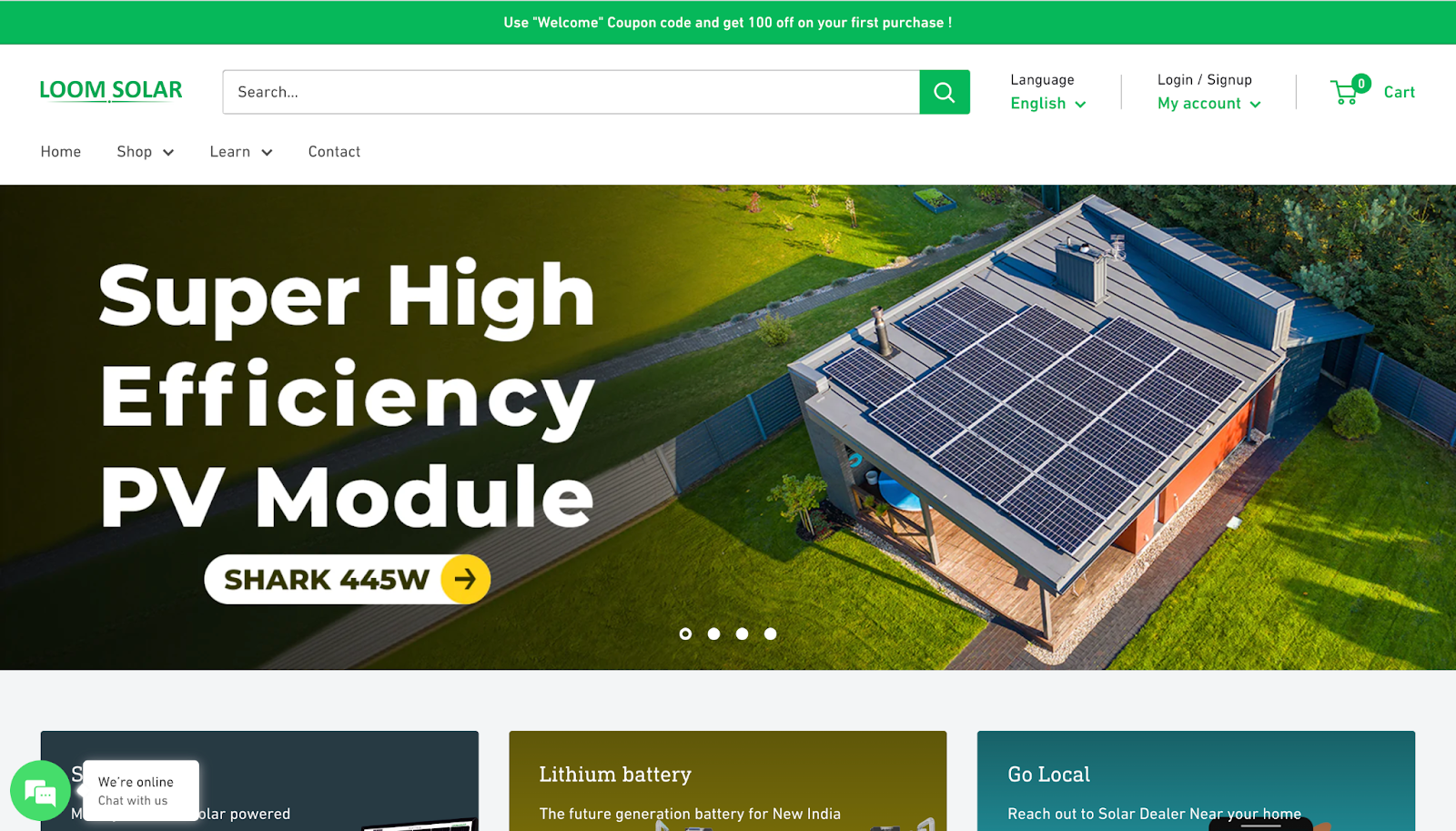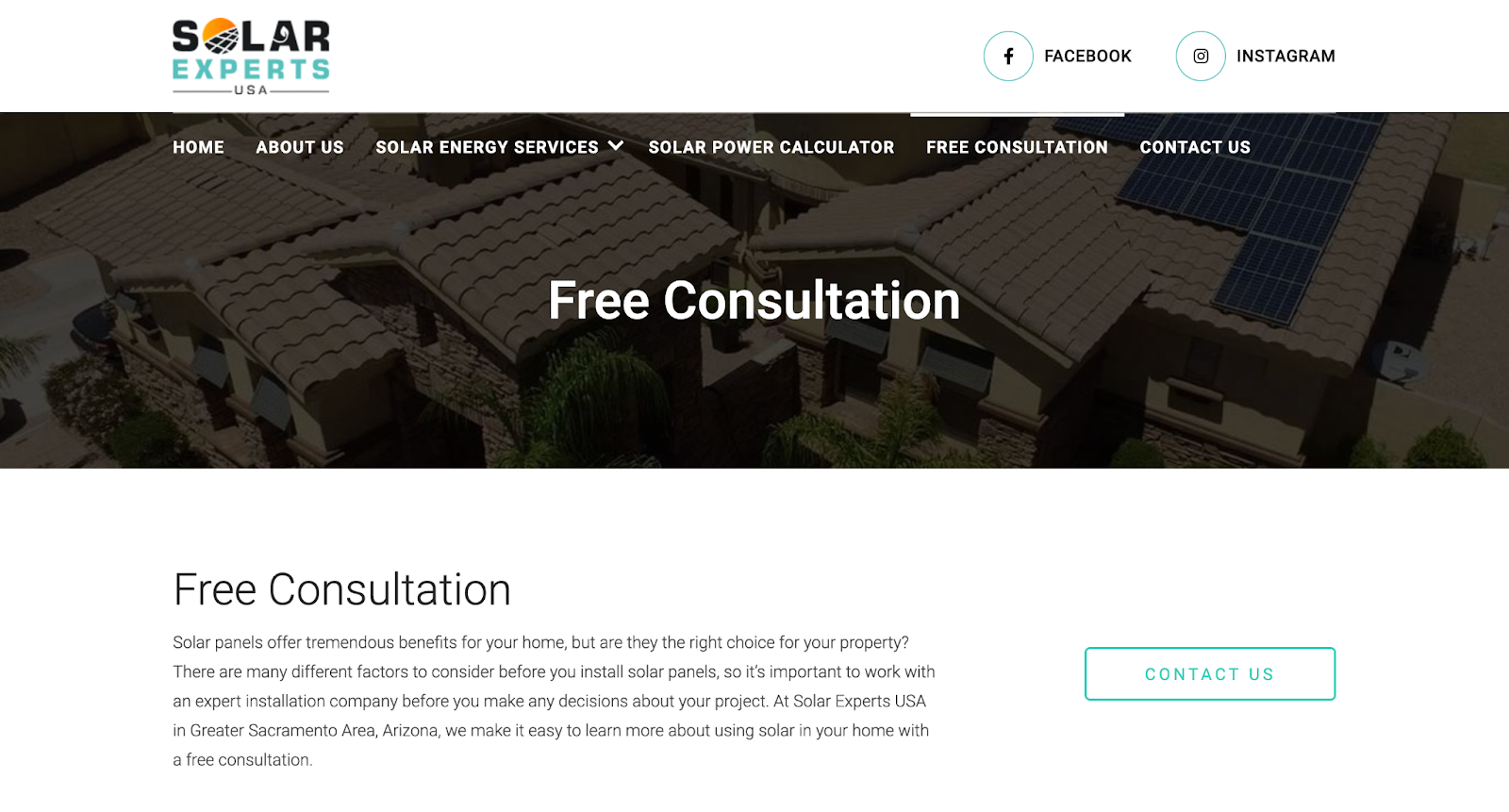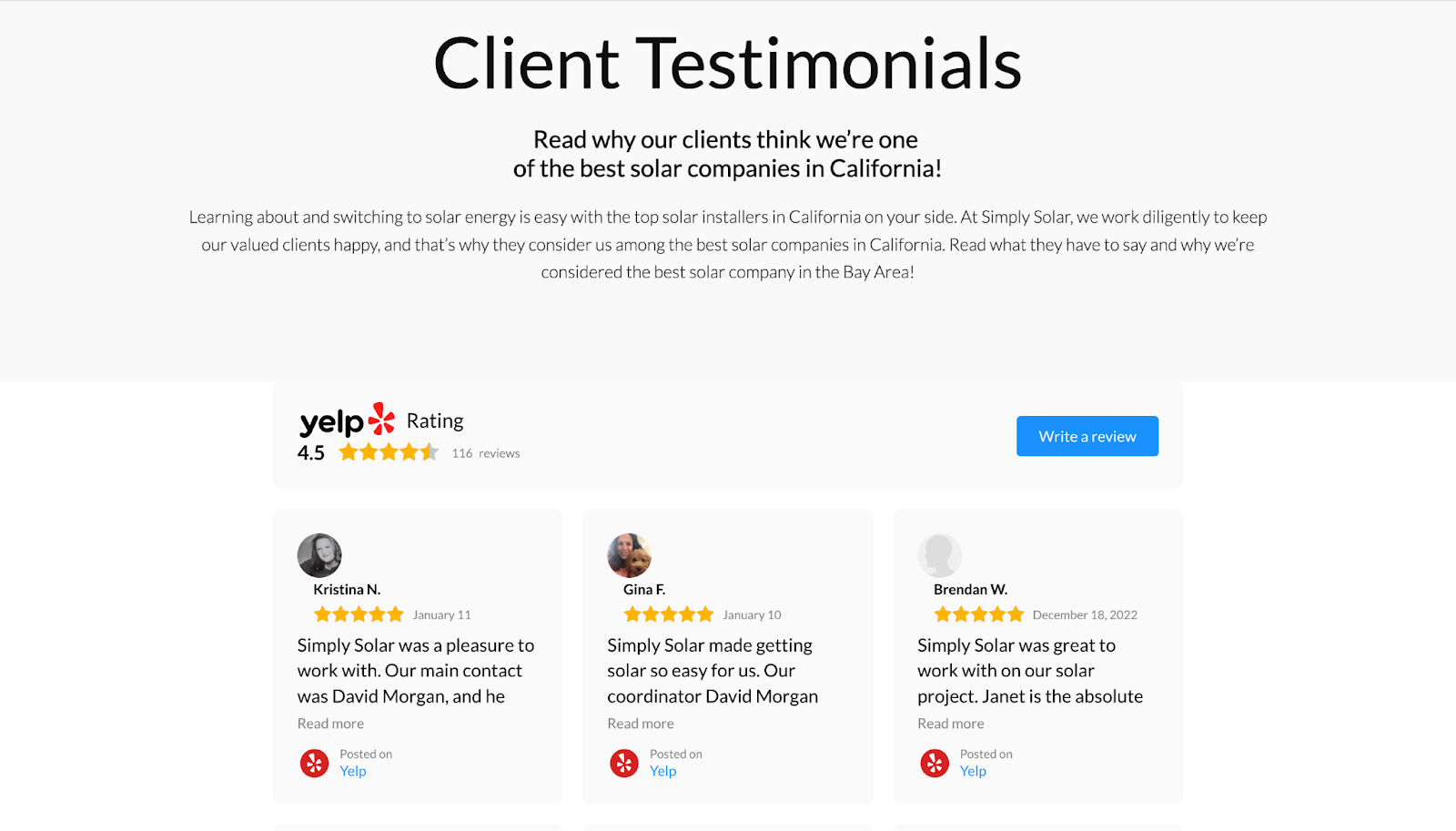How to Sell Solar Panels from Home [Updated]
The world is shifting towards renewable energy sources, and solar energy is leading the charge. The demand for solar panels is on the rise, and the industry is expected to grow exponentially in the coming years.
This presents a unique opportunity for entrepreneurs and salespeople to tap into this growing market and turn their passion for sustainability into a successful business venture.
Selling solar panels from home offers the flexibility and convenience of being your own boss without having to commute to an office or deal with the hassle of a traditional brick-and-mortar store.
At your fingertips, you can reach a wider audience, connect with potential customers from the comfort of your own home, and conduct sales and demonstrations from anywhere.
In this article, you will learn everything you need to know to sell solar panels from home, including how to find the right suppliers, build a strong brand and reach potential customers through online marketing and networking.
Shortcuts:
- Why Solar?
- Selling Solar Panels from Home: Is It Actually Worth It?
- How selling solar panels from home can be successful
- Before You Start: What You Need to Prepare?
- Tips on How to Sell Solar Panels from Home
- Find a Reputable Supplier
- Set Up Your Online Presence
- Build a Strong Brand
- Create Marketing Materials
- Start Networking
- Get qualified solar leads
- Offer Free Consultations
- Forget door-to-door - use Screen Sharing instead
- Offer Financing Options
- Provide Discounts and Incentives
- Provide Excellent Customer Service
- Encourage Reviews and Referrals
- Offer social proof
Why solar?
Nowadays, more and more people are finding it important to become eco-friendly, and being eco-friendly means contributing in a way to decrease one’s carbon footprint.
One of the things that innovators have been able to create is solar panels, which are a great way to mitigate the effects of climate change by removing the reliance on fossil fuels.
People use solar panels for different reasons - generating electricity, charging batteries, or heating water. Installing a solar panel brings many benefits, like reducing electric costs, having an infinite amount of renewable energy, and a high return on investment (ROI) because of these benefits.
In recent years, businesses that provide solar panels are seeing major increases in their profits and revenues because many people are substituting their main energy sources with solar panels.
If someone is interested in providing eco-friendly products and contributing to reducing pollution and CO2, becoming a solar panel distributor from home is a good way to start.
Selling Solar Panels from Home: Is It Actually Worth It?
Before we get into the nitty-gritty of setting up your home-based solar business, let’s answer the question on everyone’s mind: Is it actually worth it?
The short answer is yes. Thanks to the rise in solar awareness and the decrease in solar panel costs, selling solar panels from home can be a very profitable venture.
In 2018, the worldwide market for solar energy was estimated at $52.5 billion and is predicted to surge to $223.3 billion by 2026, leaping up a CAGR of 20.5% from 2019 to 2026.
With such a huge market potential, it’s no wonder that more and more people are looking to get involved in the solar industry.
Also, the reason why home-based solar businesses are becoming so popular is that they offer a number of advantages and benefits, such as:
- Lower operating costs: You won’t have to pay for office space or maintain a storefront.
- Higher margins: Because you have low overhead costs, you can sell your products at a higher price point and still make a healthy profit.
- Greater flexibility: No more door-to-door. You can work from anywhere in the world, as long as there’s an internet connection.
There’s no doubt that selling solar panels from home is a great business opportunity. But like any business, it takes hard work, dedication, and the right marketing strategy to be successful.
If you’re passionate about sustainability and want to be your own boss, then selling solar panels from home may be the perfect business opportunity for you.
How selling solar panels from home can be successful
Since solar panels bring many benefits to people’s lives and are convenient to use, they have become popular to the extent that the demand for solar panels has started to increase each passing day.
However, although the number of people desiring solar panels is increasing, the number of solar panel distributors has not risen per the demand.
For that reason, the supply and demand for the solar panel industry are not in equilibrium, causing a shortage in the number of solar panel distributors.
So, entering a market as a supplier where the number of suppliers is not enough is bound to have a positive outcome in the long run. That is why becoming a solar panel distributor can be a successful business.
When deciding to start a solar panel distributor business, these people should think about doing it from home because becoming a distributor does not require a lot of extra space for the business’s operations.
The only thing that these people will need is a good internet connection, telephone service, and a notebook.
Before You Start: What You Need to Prepare?
Selling solar panels from home is not as simple as opening an online store and waiting for the orders to come in. Just like any other business, there are a number of things you need to do before you can start selling.
Remember, any well-planned business will result in safe and easy sailing, so don’t underestimate the importance of preparing before you start your home-based solar business.
Here’s a quick rundown of what you may need to prepare:
Research and Educate Yourself
Familiarize yourself with solar panel technology, the installation process, and the benefits of using solar energy. This will help you to effectively educate and communicate with your potential customers.
Get Your Business License
In order to sell solar panels, you will need to get a business license from your local government.
The requirements vary from state to state, so it’s important that you check with your local government to see what’s required. This license will allow you to operate your business legally.
Choose a Legal Structure
You need a legal structure to protect your personal assets from liabilities. The most common legal structures for small businesses are sole proprietorships, limited liability companies (LLCs), and corporations.
Register Your Business Name
Once you have chosen a legal structure for your business, you will need to register your business name with your local government. This gives you a ‘professional’ touch and ensures no other businesses are using the same name in your area.
Get a Tax ID Number
You will need to get a tax identification number (TIN) from the IRS in order to sell solar panels. This is so you can file your taxes and avoid any penalties.
Open a Business Bank Account
It’s important that you keep your personal and business finances separate, so you will need to open a business bank account. This will make it easier for you to track your expenses and income.
Get Insurance
You will need to get liability insurance in order to protect your business from any legal liabilities. This is especially important if you’re going to be selling solar panels, as there’s always a risk of injury when working with electricity.
Tips on How to Sell Solar Panels from Home
Now that you know what you need to do before selling solar panels from home, it’s time to get into the nitty-gritty of setting up your business. So, how to sell solar panels without going back-breaking door-to-door?
Here’s a step-by-step guide on how to sell solar panels from home:
1. Find a Reputable Supplier
The first thing you need to do is find a reputable supplier who can provide you with high-quality solar panels at a competitive price. This is important because it will determine your margins and how much profit you can make from each sale.
In the supply chain, solar distributors generally fall between equipment manufacturers like Panasonic, SolarEdge, etc., and solar installers. To find a good supplier, you can either search online or attend solar trade shows.
There are a few things you need to consider when choosing a supplier, such as:
- The price of the solar panels: You need to find a supplier who can provide you with competitive pricing.
- The quality of the solar panels: It’s important that you find a supplier who can provide you with high-quality solar panels. This is because it will determine the lifespan of the panels and how well they perform.
- Brand recognition: It’s important to find a supplier who has a good reputation in the industry. This will give you peace of mind knowing that you’re working with a reliable and trustworthy company.
- The warranty of the solar panels: Most suppliers offer a minimum of a 5-year warranty on their products. However, some suppliers may offer a longer warranty, so it’s important that you find out before making your purchase.
2. Set Up Your Online Presence
Once you have found a reputable supplier, it’s time to set up your website. If you want to reach a wider audience, then a website is the best place to sell solar panels from home.
Sure. Social media might seem like a very easy, straightforward platform to sell from. You can post about your products, share photos, and write descriptions. But a well-built website makes you appear like a more professional, trustworthy vendor.
With a website, you can drive inbound traffic and get visitors to qualify to your pipeline.
Your website is like your online storefront that potential customers can visit to learn more about your products and your business. You can use Wix, WordPress, or any other website-building platform to set up your website.
Here’s an example of a well-created website from Loom Solar:

3. Build a Strong Brand
Once you have found a reputable supplier and set up an online store, it’s time to start building your brand. This is important because it will help you stand out from the competition and attract potential customers.
After all, branding is about creating a strong, recognizable identity for your business. So, having strong branding also instills trust in potential customers. After all, would you rather buy a product from a company that has a strong brand identity or one that doesn’t?
You can build your brand by creating a professional logo, using consistent branding across all your marketing materials, and creating a strong social media presence.
4. Create Marketing Materials
Selling solar panels from home is so much more than uploading your products on your website and calling it a day– crossing your fingers, hoping your customers will find you somehow. You need to market your products and make potential customers aware of your business.
There are a number of marketing channels you can use to reach potential customers, such as online advertising, social media, content marketing, email marketing, and so on. It’s important that you create high-quality marketing materials that accurately reflect your brand identity.
Marketing materials here include your website copy, product descriptions, social media posts, banner ads, email newsletters, and so on. Thanks to the internet, you can now keep the content calendar full using AI-powered content marketing tools even though you have a small team or even a one-man home-based solar business.
Remember, most solar energy customers are looking to save money on their energy bills, so make sure your marketing materials highlight the financial benefits of using solar panels.
Avoid producing way-too-hard-selling content. It’s always best to prioritize providing values such as tips, insights, and advice on your marketing materials.
5. Start Networking
Another great way to reach potential customers is by networking with other businesses in the industry. This includes attending trade shows and events related to solar energy, joining relevant online forums and groups, and connecting with other solar businesses on social media.
This will help you build relationships with other businesses in the industry and get your name out there. This is also a powerful way to get some referrals.
6. Get qualified solar leads
A great way to qualify prospects is to automate the process. One way is to invest in online ads, on social media or on search engines. The landing page for your ads should ask the lead to fill out a form to book a meeting with you or leave their details to be contacted later.
If you want to warm the lead even further, you can include a solar energy calculator on your landing page. The prospect enters their address along with contact information and you can show them how much energy their rooftop can generate.
An alternative is to buy pre-qualified solar leads. That way, you leave the footwork to someone else and pay them to give you warm leads in return.
7. Offer Free Consultations
One of the best ways to close a sale is by offering a free consultation. Not every potential customer is familiar with solar energy or the installation process, so a free consultation will help them understand how it works and what’s involved. This is also a great way to build trust and relationships with potential customers.
Here’s an example of the consultation page from Solar Experts:

During your consultation, you can assess their energy needs and recommend the best products for their home or business. You can also provide them with a custom quote based on their specific needs.
8. Forget door-to-door - use Screen Sharing instead
Door-to-door sales are ideal when selling solar - you can look people in the eye to see their level of interest and you can show them all the calculations with your tablet or laptop. But it’s time-consuming. It’s very rare that your leads live next door to each other - you will often have to walk or drive some distance between appointments. And that means you won’t be able to pitch as much as you should.
An alternative that has the effectiveness of door-to-door and the efficiency of telesales is using screen sharing software. CrankWheel is used by thousands of solar salespeople to show their screens without leaving the house. The biggest advantage CrankWheel has is that the prospect does not have to install anything. You simply share the link for the meeting via email or text and they can see your screen with one click.
You can try CrankWheel screen sharing for free.
9. Offer Financing Options
Financing options are another great way to close a sale. This is because not everyone can afford to pay for solar panels upfront, so offering financing options
This shows potential customers that you’re knowledgeable about solar energy and that you’re willing to help them save money on their energy bills. There are a number of financing options available, such as solar leases, solar loans, and power purchase agreements (PPAs).
10. Provide Discounts and Incentives
Discounts and incentives are always a great way to increase sales. This is because they provide an incentive for potential customers to buy your products.
There are a number of ways you can offer discounts and incentives, such as:
- Offer a discount for customers who pay upfront
- Offer a discount for referrals
- Offer a discount for customers who install solar panels
- Offer a free home energy assessment
11. Provide Excellent Customer Service
Excellent customer service will lead to satisfied customers. And satisfied customers are the key to more referrals.
So, it’s important that you provide excellent customer service throughout the entire process, from the initial consultation to the installation of the solar panels. Be always prepared to answer any questions they may have and provide a detailed proposal that outlines the benefits, costs, and timeline of the installation.
There are a number of ways you can provide excellent customer service, such as:
- Respond to phone calls and emails promptly
- Offer a money-back guarantee
- Provide warranty information
- Follow up with customers after the sale
12. Encourage Reviews and Referrals
Online reviews play a significant role in solar sales. In fact, according to a report by BrightLocal, 77% of consumers always read online reviews before making a purchase.
This means that potential customers are more likely to buy from you if you have positive reviews. So, it’s important that you encourage your customers to leave reviews on your website and social media pages. You can do this by sending them an email after the purchase or including a review card in their package.
Besides using unbiased platforms like Yelp and Trustpilot, you can also include a customer testimonial page on your website. A page that gave testimonials can bring the conversion up to 3.5 times compared to those without.
Here’s how Simply Solar showcases testimonials on its website to show its happy customers:

Most solar providers offer referral bounties for every new customer that is referred by an existing customer. The bounty can be from hundreds of dollars up to a thousand dollars for each referral that leads to a sale.
Make it easy for your customers to refer their friends and neighbors to you. You can send personalized, pre-recorded videos to your customers or configure the post-meeting redirect so they end up on your referral page after a screen sharing session.
13. Offer social proof
Once you start to build a portfolio of happy customers, it’s easy for you to tell prospects that you helped the Jones across the street to lower their electricity bills. Just remember to document your sales and see if you have any customers in the neighborhood.
But when you are starting out, it’s almost impossible to talk about your limited number of past customers. There is a way around that. Most solar calculator apps use satellite images. Try to see if any neighbors have solar on their roofs. Ask the customer if they are interested in saving on their electricity like their neighbors, you can even ask them if the neighbors have shared their experience.
This way, you have to prospect to provide the social proof themselves and it increases the possibility of closing the sale.
Wrapping Up
Now you know what it takes to sell solar panels from home. It’s a great way to turn your passion for sustainability into a successful business venture. Thanks to the rise in solar energy awareness and the decrease in solar panel costs, selling solar panels from home can be a very profitable venture.
Whether you are looking to supplement your income or build a full-time career, selling solar panels from home has the potential to be a lucrative and fulfilling business.
To succeed in this industry, you need to have a deep understanding of solar panel technology, the installation process, and the benefits of using solar energy. You also need to be a skilled communicator, able to educate your customers on the many benefits of switching to solar power and help them make informed decisions.
Author

Andre Oentoro is the founder of Breadnbeyond, an award-winning explainer video company. He helps businesses increase conversion rates, close more sales, and get positive ROI from explainer videos (in that order).
Twitter: @breadnbeyond
Email: andre@breadnbeyond.com
LinkedIn: Andre Oentoro
